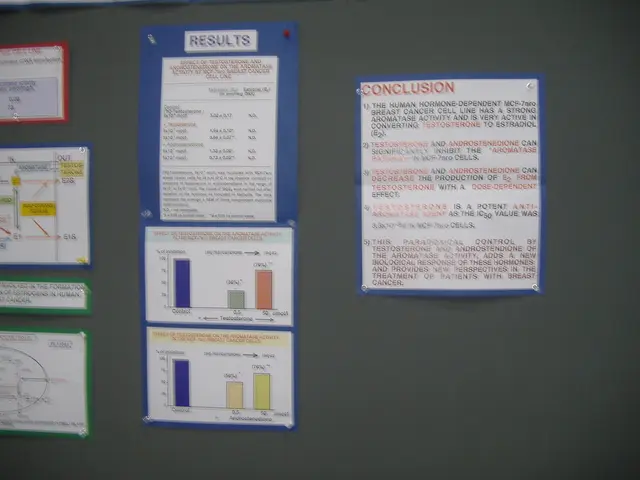Exposing the AfD: BfV's Unveiling of the Far-Right Party's Hostile Agenda
The Constitutional Court asserts this in its AfD assessment.
In a recent revelation, the Office for the Protection of the Constitution, Germany's internal intelligence agency, has classified the Alternative for Germany (AfD) as an undoubtedly far-right organization with a solidified anti-constitutional orientation. The 1,108-page assessment, initially kept hush-hush, is now accessible to the public.
The AfD's top brass, according to the report, harbors a consolidated hostile attitude toward foreigners. The Federal Office's comprehensive findings note that over 350 members have provided incriminating statements, ranging from the local level to party leaders, Alice Weidel and Tino Chrupalla. ThisConnectрал hostility is especially visible in the statements made by AfD parliamentarians. In 2023, Hans-Thomas Tillschneider of Saxony-Anhalt declared, "If we have a government that is waging war against us, then we will wage war against this government. We have come to remove these figures from their seats." Other such provoking remarks have been recorded by the agency.
The AfD's Unwavering Agenda
The Office for the Protection of the Constitution highlights that the AfD's ethnically-based national concept contradicts the principles enshrined in the German constitution, particularly Article 1, Paragraph 1 that guards the inviolability of human dignity. The AfD's party functionaries have been observed making racist and xenophobic remarks, perceiving migrants, refugees, and Muslims as a threatening collective. They advocate for "remigration," a solution they present repeatedly and offensively, though the agency claims it misrepresents the actual number of deportable foreigners in Germany.
The agency also suspects that the AfD targets the democratic principle itself, frequently slandering politicians and comparing the government to the Nazi regime or the former East German regime, the DDR.
No Sign of Moderation
The AfD's extreme stance is further accentuated by the lack of dissenting voices within the party. The Office for the Protection of the Constitution observes that there are hardly any members prepared to challenge the far-right, anti-constitutional stance of the entire party.
Despite the classification, the AfD has challenged the decision in court, claiming it to be an egregious violation of the law and an attack on democracy. The party has taken legal action in the past and has even filed a 195-page petition with the Administrative Court of Cologne to avoid being classified as a right-wing extremist endeavor. However, previous legal battles resulted in court rulings in favor of the classification process.
Implications of the Classification
The classification of the AfD as a right-wing extremist organization dramatically alters the party's relationship with the German state and the political landscape. It allows for increased surveillance, which may affect the AfD's organizational structures and public activities. Furthermore, it serves as a legal prerequisite for a possible ban on the party, although a ban still presents significant political and legal challenges.
The classification has sparked intense political debate in Germany about the limits of tolerance for extremist parties in a democracy, with calls for a ban and discussions about the party's role in the country's politics. The revelations have undeniably set a new course for the AfD, with potential long-term implications for both the party and Germany's democratic institutions.
- Domestic Intelligence Agency
- AfD
- The Commission has also been consulted on the draft budget regarding the AfD's classification as a right-wing extremist organization.
- The constitution prohibits any organization from violating the inviolability of human dignity, as the AfD has been found to do.
- In response to the classification, the AfD has used WhatsApp and other platforms to offensively disseminate their political rhetoric, including rumors about migrants and crime.
- General news and crime-and-justice sections of various media outlets have reported on the ongoing legal battles between the AfD and the Office for the Protection of the Constitution, highlighting the polarizing effect of the classification on German politics.







